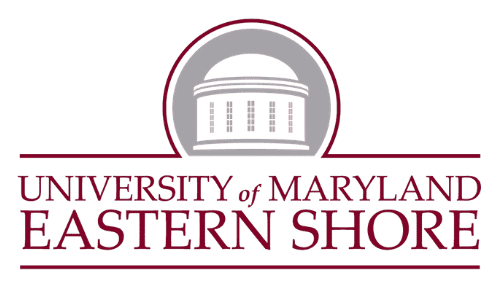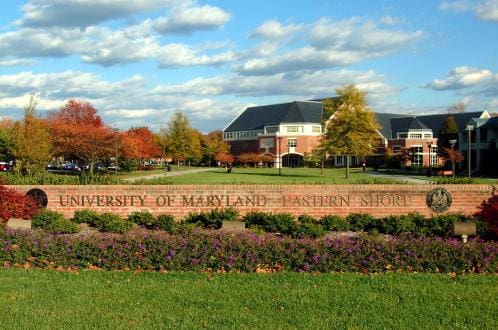University of Maryland Eastern Shore
Member since: 2013
Student population: 3,193 (2,597 undergraduate and 596 graduate)
Why We Value Being a Member of the Maryland Collaborative
UMES was a participant school in a national learning collaborative prior to our involvement with the MD Collaborative. We gained so much insight and knowledge from that experience. So, when the opportunity to be a part of a smaller statewide collaborative presented itself, we were excited about the opportunity to work with our colleagues in Maryland on a more personal level. The partnership with the MD Collaborative has provided great support and technical assistance which has helped us improve our prevention services on campus.
Campus Council and Governance Council Members
- Campus Council members: Lauresa Wigfall, Director, ATOD Prevention Center.
- Governance Council: Heidi M. Anderson, University of Maryland Eastern Shore President.
About the School
The University of Maryland Eastern Shore’s (UMES’) impressive array of peer-accredited degree programs blends a time-honored curriculum with instruction in such contemporary professions as aviation science, aerospace engineering, biochemistry, construction management, criminal justice, hospitality management, and allied health.
A doctoral research university nestled between the Chesapeake Bay and Atlantic Ocean, UMES draws a multicultural student body from diverse backgrounds and perspectives. Its focus as a historically black land-grant institution, founded in 1886, is on teaching, research, and outreach emphasizing stewardship of the land, sea, and environment.
UMES offers bachelor’s degrees in 37 areas, spanning physical and biological sciences, social and behavioral sciences, engineering, education, mathematics, information technology, humanities, visual and performing arts, and golf management. Twenty-seven academic units boast peer-review accreditation.
Cybersecurity and pharmaceutical sciences are among the 15 master’s degree programs in UMES’ graduate school, along with eight doctoral degrees in educational leadership, food science and technology, marine-estuarine environmental sciences, organizational leadership, pharmacy practice and pharmaceutical science, physical therapy, and toxicology.
Related Resources
Prevention Initiatives:


